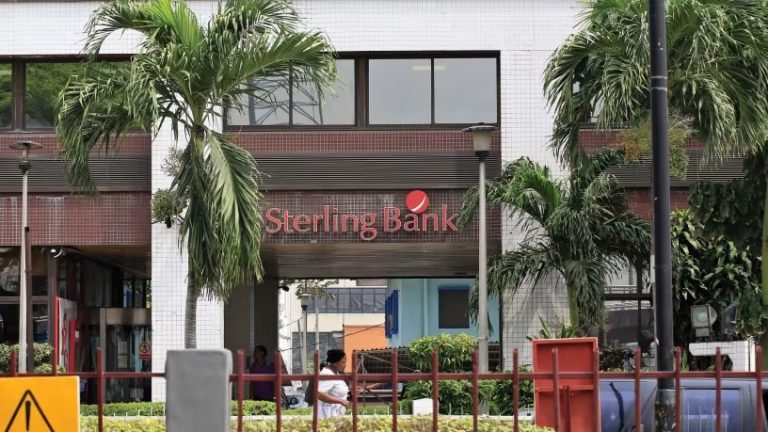
Sterling Bank, one of Nigeria’s leading financial institutions, has taken a pioneering step by migrating to Africa’s first indigenous core banking system, SeaBaaS (Secure, Efficient, Agile Banking as a Service).
SeaBaaS is Sterling’s new core banking application, developed specifically for the African market by Peerless. SeaBaaS provides a stable, reliable, and flexible platform that supports local economic growth and innovation.
The move to adopt an indigenous core banking system underscores Sterling Bank’s commitment to fostering African innovation and reducing reliance on foreign banking technologies. By adopting an African-developed platform, Sterling Bank is setting a precedent for other financial institutions across the continent to explore locally developed solutions that are tailored to meet the unique needs of the African market.
Register for Tekedia Mini-MBA edition 19 (Feb 9 – May 2, 2026): big discounts for early bird.
Tekedia AI in Business Masterclass opens registrations.
Join Tekedia Capital Syndicate and co-invest in great global startups.
Register for Tekedia AI Lab: From Technical Design to Deployment (next edition begins Jan 24 2026).
Check out some Strategic Advantages of the Sterling Bank’s migration to this new system:
1. Customization for Local Needs: Unlike foreign solutions, the indigenous system is designed to address the specific regulatory, operational, and market conditions within Nigeria and Africa. This offers enhanced flexibility in responding to local banking challenges and customer preferences.
2. Cost Efficiency: By adopting a homegrown system, Sterling Bank is likely to benefit from lower costs associated with software licensing, maintenance, and customization compared to foreign-developed solutions. This may also reduce foreign currency outflows, which is crucial in economies like Nigeria’s.
3. Improved Customer Experience: The migration is expected to result in faster, more efficient banking services, providing Sterling Bank’s customers with seamless transactions, enhanced security, and better access to a wide range of financial services, all while promoting financial inclusion.
4. Data Sovereignty: With increased concerns about data privacy and security, especially when relying on foreign technologies, the use of an indigenous core banking system gives Sterling Bank greater control over its data infrastructure, aligning with national regulations on data protection and sovereignty.
Speaking on the Sterling Bank adoption of Africa’s first indigenous core banking system, SeaBaaS, the bank’s CEO Abubakar Suleiman, emphasized that this migration is part of a broader digital transformation strategy, aimed at improving operational efficiency, reducing service downtime, and delivering enhanced financial services to its customers.
He described this development as the beginning of a new era in Africa’s quest for economic self-sufficiency, with the intellectual property behind SeaBaaS set to be shared with partners across the continent in the coming months.
In his words,
“Partnering with Peerless to create SeaBaaS is not just a milestone for us; it is a renewal ofour resolve and ambition to remain a world-class organization. It is proof that African institutions can do great things that will make the world stand up and take notice of us. We are once again proving that the notion of Nigerian banking being one of the most technologically advanced is not just a myth, but a reality that is manifested in the quality of solutions we can develop, and services we can deliver to our customers.”
Suleiman reiterated that the transition to SeaBaaS represents many things to many people. For the African banking industry, he said it is the continent’s first indigenously conceived and engineered core banking application, built and owned entirely by a Nigerian company, with every line of code, database configuration, and interface proudly African, delivered by home-grown talent. For our customers, it offers faster transactions, enhanced security, and innovative financial products tailored to their needs. For regulators, it ensures greater transparency, robust reporting, and compliance with evolving standards”.
He further acknowledged the challenges faced during the implementation, stating that implementation issues had been resolved, with the institution’s full bouquet of digital banking services being restored in phases for customers’ use.
“This successful deployment reminds us that nothing truly valuable comes without challenges. While this transition has tested our systems and patience, it also reinforced our commitment to innovation and excellence. We enter this new phase confident that the migration will deliver unmatched efficiency and transformative customer experiences”, he added.
He finally pointed out the financial implications of the migration, noting that African banks collectively spend hundreds of millions of dollars annually on foreign core banking systems, which exacerbates the continent’s trade balance issues.
Sterling Bank adoption of Africa’s first indigenous core banking system highlights the growing capability of African technology companies to develop world-class solutions. This migration is likely to inspire confidence in local tech innovations and encourage other banks and financial institutions across Africa to consider adopting similar solutions, boosting the continent’s financial ecosystem.
Notably, the bank is focused on using technology to foster innovation and increase financial inclusion in Nigeria and beyond. As Africa continues to embrace digital transformation in banking, Sterling Bank’s pioneering move demonstrates the potential of indigenous technology to drive innovation, reduce costs, and provide tailored solutions for local markets.



